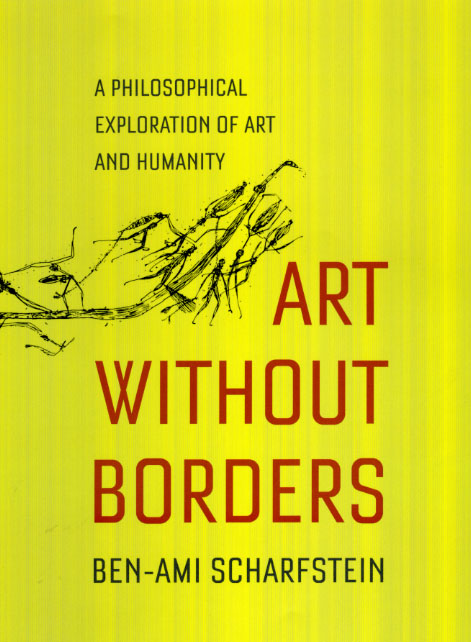A Philosophical Exploration of Art and Humanity

As Bert Archer notes in his book review for Monday’s Globe and Mail, Ben-Ami Scharfstein, professor emeritus of philosophy at Tel Aviv University, “has spent decades studying and publishing on Chinese, Japanese, African, European, American, South American and Pacific island culture.” And in his new book, Art Without Borders: A Philosophical Exploration of Art and Humanity, Scharfstein brings the full force of his arsenal of cultural knowledge to bear in a fascinating study of art as a universal part of human experience. Archer writes for the Globe:
[Scharfstein’s encyclopedic erudition] has given him a fluency of reference that allows him to efficiently, easily and convincingly compare a 16th-century Chinese artist with Picasso, use Yanagi Sôetsu’s take on art in the age of mechanical reproduction to add to the usual Benjamin version, and describe second millennium BC Egyptian art in ways that recall Andy Warhol films such as Blow Job.
Indeed, this breadth of references is an inherent part of the book’s argument. When Scharfstein uses a Congolese proverb to remind us that history is written by the victors, Nigeria’s Prince Twins Seven-Seven as an example of a surreal artist, or the 11th-century Chinese forger Mi Fu to discuss the nature of authenticity, he is reinforcing the point that art’s big issues are universal and at the same time expanding our own comparatively anemic cultural frames of reference and highlighting the fact that art crosses historical and cultural borders rather easily.
…
“Art everywhere has aesthetic values that are available to persons everywhere else,” he says, and we believe him because he has shown us.
A profound and personal meditation on the human hunger for art, Art Without Borders unearths those essential elements that make artistic production a global endeavor, and articulates a common framework for cross-cultural artistic appreciation.
To find out more read the review online or see this excerpt.